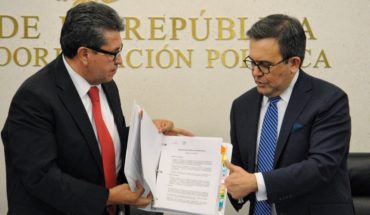“The covid crisis has made people realize that passive income is much needed. That’s what led me to invest,” he told Ed Butler, the Host of Business Daily.
Nachiket said the Indian stock market has suffered two sharp declines since it started investing, but that didn’t deter it. Quite the opposite.
“I think market crashes present an opportunity, because there are very good stocks at a very good price,” he said.
“You have to have resilience. If you want to succeed as an investor, you have to stay calmado while the market gets back on track“He said.
This strategy, he said, allowed him to generate profits of between 30% and 40%.
In India, some 20 million people started investing their savings, for the first time, during the pandemic. GETTY IMAGES
The risks
But experts and authorities fear that this growing interest in online investments and financial speculation it could provoke a new crisis, such as the so-called “dot-com bubble”, when the Nasdaq stock index collapsed two decades ago.
Others warn that the most imminent danger is that many of these young and inexperienced investors, who risk their savings, either on the stock exchange or buying cryptocurrencies, lose all your money.
In the UK, the Bank of England has made explicit warnings about the increase in the number of risky investments.
Sarah Pritchard is chief markets officer at the UK’s Financial Conduct Authority (FCA), which is trying to alert these novice investors through platforms such as Instagram and TikTok.
Pritchard told the BBC why he is alarmed by growing risk appetite of these new young investors.
“Our research shows that people in their 18s and 40s have double the probability of investing in high-risk investments, but when you inquire about their tolerance for risk it is, in fact, low,” he said.
“To give an example: 70% of the young people we surveyed believed that buying crypto assets was protected, so any losses would be compensated, when they are not.”
She also noted that many inexperienced investors don’t know that their assets can be reduced, rather than increased.
“Almost half of investors who invest without financial advice they don’t realize they can lose money for the risk of your investment. That’s what worries us,” he said.
Pritchard noted that there have always been people looking for ways to maximize their income through investments, but “what’s new is speed with the you can do it, with the increasing digitalization of our lives.”
Thanks to technology, today you can invest in the stock market or cryptocurrencies from the comfort of your armchair. GETTY IMAGES
According to FCA research, many young people are starting to make risky investments as a way to compete with friends or family, or motivated by what they see on social networks and other means.
While these novice venture capitalists began to be active during the pandemic, Pritchard does not believe that the phenomenon will end when the coronavirus ceases to be a threat.
“We know that one million people (in the UK) bought or increased their high-risk investments in the first six months of the pandemic, but we believe this is here to stay, as the market changes.”
Is it so bad?
But is it so bad that young people are taking more risks with their savings?
After all it is common to be riskier when one is young.
And, from a financial standpoint, it might be better to take greater risks when you have less to lose and more time to recoup it.
Lesley-Ann Morgan led a global study that analyzed investment trends in more than 20 countries for investor Schroders Wealth Manahement.
Morgan told the BBC that many young people found that they had more money available than usual during the pandemic.
“Many told us that they saved more than they anticipated and had invested more than they planned because, on the one hand, they were spending less money because they couldn’t get out as much because of covid, but also because their income had increased during the pandemic as a result of state aid.”
Many of them areNew investors tended to ignore traditional strategies, betting on stocks of technology and internet companies.
“This did not surprise us because these types of companies benefited from the pandemic,” said the expert.
Many of the novice investors bet on cryptocurrencies. GETTY IMAGES
But young people also showed a lot of interest in other novel investments, such as e-cars, biotechnology and cryptocurrencies.
Morgan agreed with the FCA report that social media plays an important role in encouraging such investments.
“I think a lot of people are being bombarded with information on social media to invest in this type of business,” he said.
As for the damage these high-risk investments can generate, he believes that betting on riskier assets when one is younger and has a lot of time before retiring is “normal and very acceptable.”
However, “the real question is how many of their assets are involved in these risky investments and whether they could cope with a fall of 20%, 30% or 40%, as we have seen in the case of some cryptocurrencies this year.”
Another key point, he said, is where the money invested comes from.
“If it’s money that you need to pay the rent, for example, and you’re using it for what, in essence, is a bet, that’s a problem“.
“But as a general rule, if you have more time to wait until you make a profit, riskier assets make sense when you’re younger,” he acknowledged.
Taking risks when you’re young makes sense, as long as you don’t invest more than you can lose and don’t pretend to have immediate profits. GETTY IMAGES
However, he clarified that, according to the study he conducted, many of the younger investors do not seem to have the patience that is required to see those long-term gains.
“We asked investors how often they checked their investments and many did so at least once a week.”
“That makes me think that people are trading on the stock market rather than investing in the long term, which gives me some concern,” he said.
You can listen to the BBC’s Business Daily programme on this subject. here





